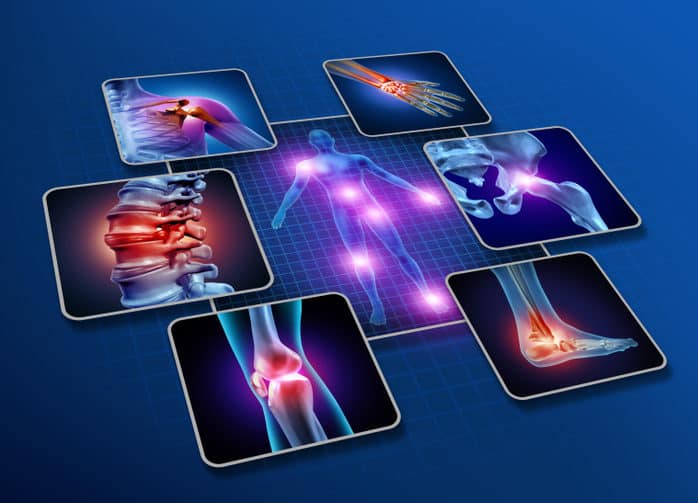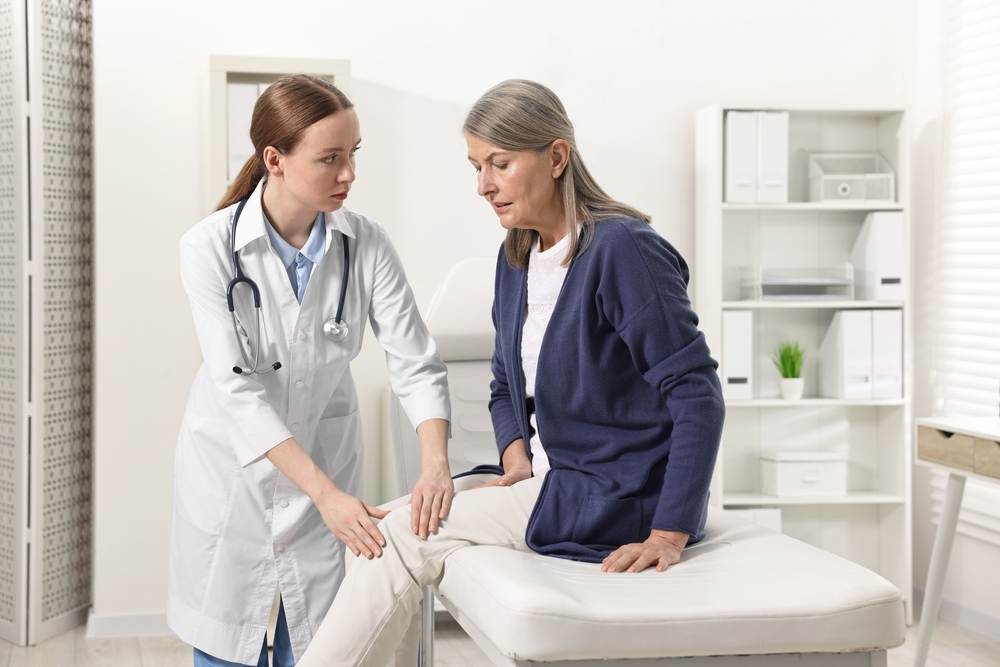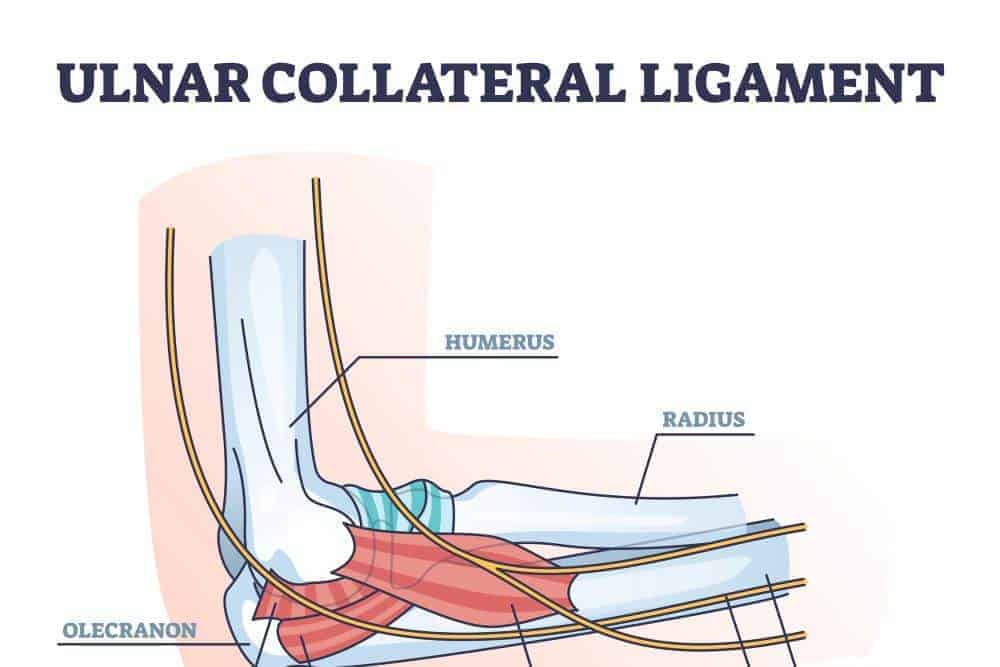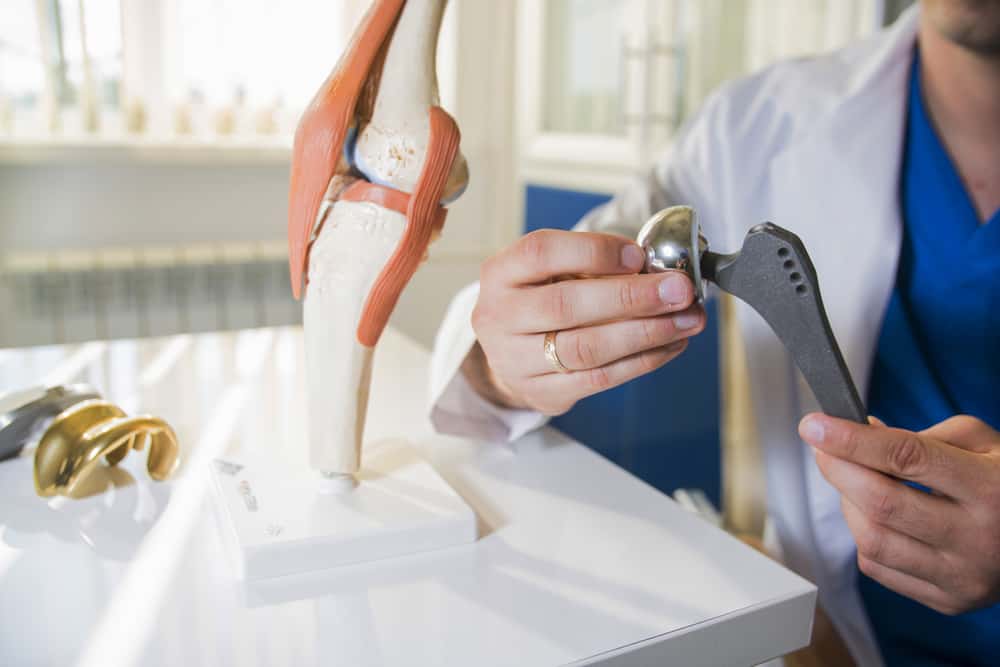Para muchas personas, la artritis es una consecuencia natural del crecimiento: la edad, la genética y el sexo pueden hacerte más propenso a padecerla. Sin embargo, hay otros factores ambientales que aumentan tus probabilidades de desarrollar artritis en las articulaciones. Cuando empieces a notar síntomas, quizá quieras reunirte con un médico especialista en rodillas o un quiropráctico para determinar el mejor plan de tratamiento para ti. Antes de esta visita, puede ser útil saber más sobre la artritis y cómo empieza a desarrollarse.
Sobre la artritis
La artritis es una enfermedad caracterizada principalmente por la rigidez e inflamación de las articulaciones. En realidad, no es una sola enfermedad, sino una forma amplia de referirse al dolor articular y a las enfermedades de las articulaciones. Hay más de 100 formas distintas de artritis, con diversas causas y tratamientos. Se calcula que algún tipo de artritis afecta a 52,5 millones de adultos estadounidenses, según los Centros para el Control y la Prevención de Enfermedades (CDC), es decir, a uno de cada cinco estadounidenses.
Los síntomas de la artritis suelen desarrollarse con el tiempo, aunque en algunos casos pueden aparecer de repente. Suele aparecer en adultos mayores de 65 años, pero también es posible que la padezcan niños, adolescentes y adultos jóvenes. Las mujeres y las personas con sobrepeso también son propensas a padecer esta enfermedad.
Formas más comunes de artritis
Aunque existen más de 100 formas de artritis, algunas son más frecuentes que otras. La forma más común de artritis se conoce como osteoartritis, que está causada por el “desgaste” que se produce cuando las articulaciones se usan en exceso. Esto suele ser consecuencia de la edad, pero las lesiones articulares o la obesidad pueden someter a las articulaciones a una tensión adicional y hacer que la enfermedad aparezca antes. Las articulaciones que soportan peso, como las rodillas, las caderas y los pies, son los lugares que suelen verse afectados, normalmente con dolor en las articulaciones como síntoma principal.
La artrosis se produce cuando empiezas a perder el amortiguador de tu cuerpo al romperse el cartílago. Éste es el material resbaladizo que recubre los extremos de tus huesos donde se juntan con tus articulaciones. El daño a este cartílago hace que el movimiento resulte doloroso, e incluso puedes oír un chirrido al moverte.
La otra forma más común de artritis es la Artritis Reumatoide (AR), que en realidad es una enfermedad autoinmune. En este caso, el sistema inmunitario ataca al organismo, sobre todo a las articulaciones, lo que provoca inflamación y, finalmente, lesiones articulares. Es muy frecuente que las personas con AR desarrollen bultos en la piel denominados nódulos reumatoides, que suelen formarse sobre zonas articulares que reciben presión, como los nudillos o los codos.
Los médicos especializados en la rodilla no saben muy bien qué causa la AR. Algunas teorías afirman que el sistema inmunitario se “confunde” tras una infección y empieza a atacar las articulaciones, provocando la enfermedad. También se cree que ciertas sustancias químicas del organismo pueden bloquear mi medicación e inducir los síntomas. Los síntomas de la AR suelen ser más graves que los de la artrosis.
Otras formas de artritis
La artritis puede producirse debido a la inflamación de la piel y las articulaciones en lo que se conoce como artritis psoriásica. Puede empezar en la infancia o, por lo general, entre los 30 y los 50 años, como reacción a la psoriasis.
La gota, una acumulación de cristales de ácido úrico en una articulación, y el lupus, una enfermedad autoinmune, también son formas de artritis que pueden causar problemas en la articulación.
Tratamiento de la artritis
El objetivo principal del tratamiento es reducir el dolor causado por la artritis, así como prevenir futuros daños en las articulaciones. Por desgracia, no hay forma de deshacer el daño que ya se ha producido. Antes de visitar a un médico especialista en rodillas, es probable que hayas probado remedios caseros y hayas encontrado algunas cosas que te ayuden a controlar el dolor, como compresas de calor y hielo o el uso de un bastón.
Además de este alivio, es importante mejorar tu función articular con la ayuda de un profesional. Pueden recetarse algunos medicamentos para controlar el dolor o disminuir la inflamación. La medicación no debe ser tu única fuente de tratamiento, pero puede utilizarse para hacerlo más eficaz o permitirte hacer cosas como fisioterapia. También se incluyen en el tratamiento ejercicios y nutrición para tus articulaciones. En casos graves, la cirugía para sustituir una articulación por una artificial puede ser una opción.
Aunque no existe cura para la artritis, un tratamiento adecuado puede ser importante y ayudar a reducir los síntomas. Ortopedia AICA cuenta con una serie de especialistas que pueden actuar como tu médico de rodilla: quiroprácticos, fisioterapeutas, ortopedistas y otros estarán a tu disposición para elaborar un plan de tratamiento especializado para tu tipo de artritis en concreto. ¡Llama hoy mismo para programar tu primera visita y empezar a reducir tu dolor!





